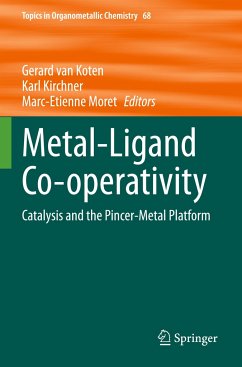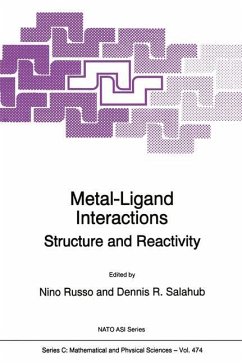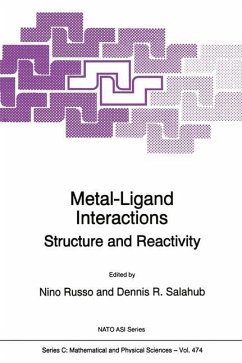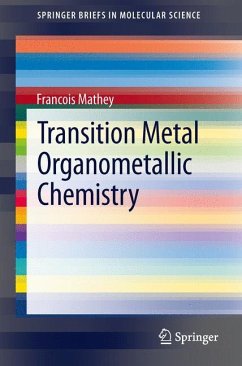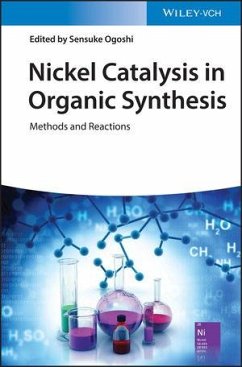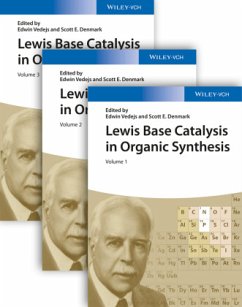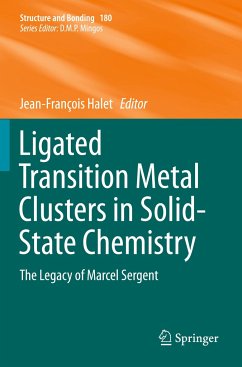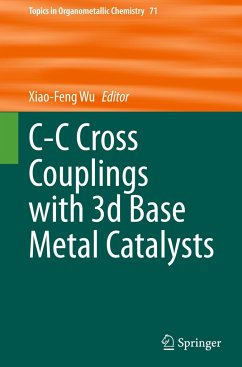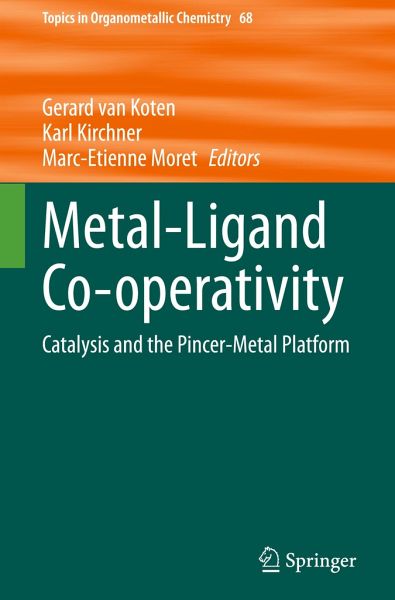
Metal-Ligand Co-operativity
Catalysis and the Pincer-Metal Platform
Herausgegeben: van Koten, Gerard; Kirchner, Karl; Moret, Marc-Etienne

PAYBACK Punkte
125 °P sammeln!
This book provides researchers in the fields of organic chemistry, organometallic chemistry and homogeneous catalysis with an overview of significant recent developments in the area of metal-ligand cooperativity, with a focus on pincer architectures. The various contributions highlight the widespread impact of M-L co-operativity phenomena on modern organometallic chemistry and catalyst development. The development of efficient and selective catalytic transformations relies on the understanding and fine control of the various elementary reactions that constitutes a catalytic cycle. Co-operative...
This book provides researchers in the fields of organic chemistry, organometallic chemistry and homogeneous catalysis with an overview of significant recent developments in the area of metal-ligand cooperativity, with a focus on pincer architectures. The various contributions highlight the widespread impact of M-L co-operativity phenomena on modern organometallic chemistry and catalyst development. The development of efficient and selective catalytic transformations relies on the understanding and fine control of the various elementary reactions that constitutes a catalytic cycle. Co-operative ligands, which actively participate in bond making and bond breaking together to the metal they support, open up new avenues in this area. In particular, buttressing a weak or reactive metal-ligand bond by flanking coordinating arms in a pincer ligand design is proving a versatile strategy to access robust metal complexes that exhibit unusual and selective reactivity patterns.



